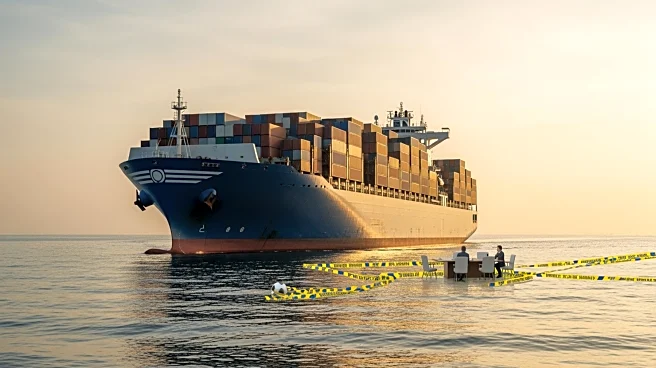What's Happening?
Matson, the largest U.S. ocean container carrier, is set to save up to $80 million annually after the U.S. and China agreed to postpone reciprocal port fee programs. The carrier has been facing declines
in ocean revenues and income due to lower freight rates and container volumes on its transpacific trade lane. Despite the postponement of fees, Matson reported a significant decline in third-quarter operating income and anticipates further declines in the fourth quarter. The company expects a more stable trading environment following the agreements between the U.S. and China.
Why It's Important?
The postponement of port fees is a relief for Matson and other carriers, as it reduces operational costs and alleviates some of the financial pressures caused by tariffs and global trade uncertainties. The decision reflects ongoing negotiations between the U.S. and China to stabilize trade relations, which is crucial for the shipping industry. Matson's experience highlights the challenges faced by carriers in navigating volatile trade environments and the importance of diplomatic agreements in mitigating economic impacts. The company's cautious approach to inventory levels and customer relations will be critical in managing future uncertainties.
What's Next?
Matson is awaiting specific instructions regarding the postponed port fees and potential rebates. The company will continue to monitor trade relations between the U.S. and China, which may influence future operational strategies. Stakeholders will be observing how Matson adapts to the changing trade landscape and manages its financial performance amid ongoing global uncertainties. The shipping industry may also see shifts in trade patterns and operational strategies as carriers respond to evolving trade agreements.











